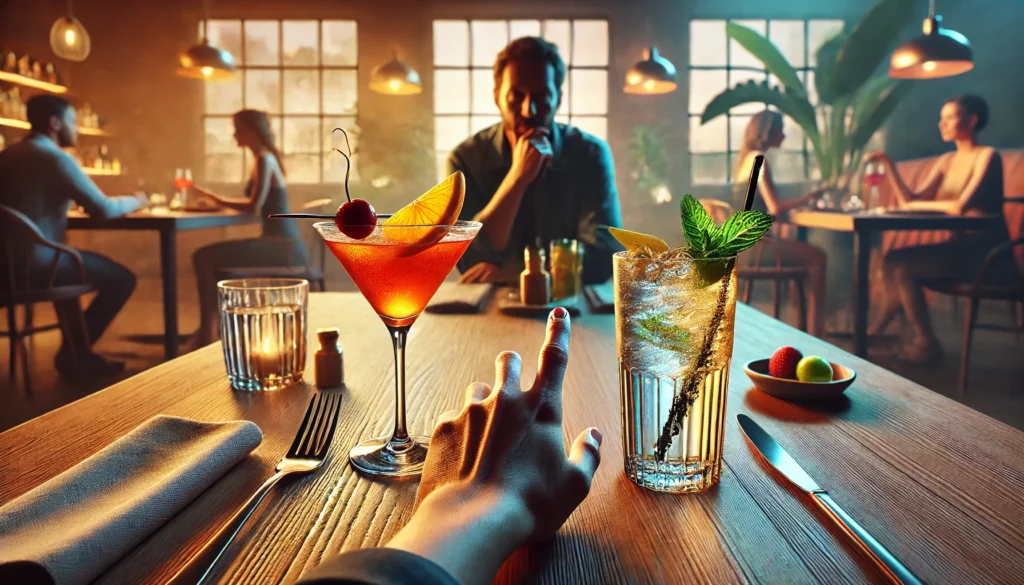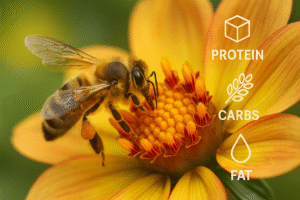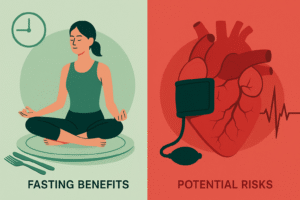Did you know that alcohol is classified as a Group 1 carcinogen, putting it in the same category as tobacco and asbestos? Despite its social acceptance, alcohol’s effects on the body go far beyond intoxication. In this blog, we’ll explore how ethanol, the primary ingredient in alcoholic beverages, is broken down into acetaldehyde, a toxic compound that damages DNA (Deoxyribonucleic Acid) and increases cancer risk. Understanding this process can help us make informed choices about alcohol consumption and its hidden dangers.
The Science Behind Alcohol Metabolism
When you consume alcohol, your body works hard to break it down and eliminate it. Here’s what happens inside your system:
Ethanol Absorption:
Ethanol from alcoholic beverages rapidly enters the bloodstream via absorption in the stomach and small intestine. Conversion to Acetaldehyde: The liver metabolizes ethanol using the enzyme alcohol dehydrogenase (ADH), converting it into acetaldehyde.
Acetaldehyde Breakdown:
Another enzyme, aldehyde dehydrogenase 2 (ALDH2), helps break acetaldehyde down into a harmless substance called acetate, which is further processed into carbon dioxide and water.
However, problems arise when acetaldehyde builds up faster than the body can neutralize it.

Acetaldehyde: A Silent DNA Destroyer
Acetaldehyde is a known carcinogen (cancer-causing substance). Its effects on the body are significant:
Direct DNA Damage: Acetaldehyde binds to DNA molecules, forming harmful compounds called DNA adducts, which prevent proper DNA replication and repair.
Increased Mutations: DNA damage leads to genetic mutations, which can trigger uncontrolled cell growth—a hallmark of cancer.
Weakened Repair Mechanisms: Acetaldehyde reduces the body’s ability to fix DNA damage, increasing the likelihood of permanent genetic errors.
Inflammation and Oxidative Stress: The presence of acetaldehyde can lead to chronic inflammation and oxidative stress, further damaging cells.
The Cancer Connection: Why Alcohol Increases Cancer Risk
Scientists have long studied the relationship between alcohol and cancer. According to The International Agency for Research on Cancer (IARC), alcohol consumption is a direct cause of at least seven types of cancer:
- Mouth Cancer
- Throat (Pharynx) Cancer
- Voice Box (Larynx) Cancer
- Esophageal Cancer
- Liver Cancer
- Colorectal Cancer
- Breast Cancer (in women)
A major study found that women who drink two alcoholic drinks per day have a 5% higher chance of developing breast cancer compared to those who drink less than one drink per week. For men, the lifetime risk of alcohol-related cancer increases from 10% to 13% with regular drinking.
Case Study: The Role of Genetics in Alcohol Metabolism
Not everyone metabolizes alcohol the same way. People with a genetic mutation affecting ALDH2 experience a condition known as an alcohol flush reaction (red facial flushing after drinking). This mutation leads to slower acetaldehyde breakdown, resulting in higher exposure to DNA damage. Studies show that people with this mutation have a greater risk of oesophagal cancer, especially if they drink regularly.
Comparing Alcohol and Smoking: Which is Worse?
Many people associate smoking with cancer but underestimate alcohol’s risks. A 2019 study found that drinking one bottle of wine per week is equivalent to smoking five cigarettes for men and ten cigarettes for women in terms of cancer risk. This shocking comparison highlights how alcohol’s cancer-causing potential is often overlooked.
Can You Reduce the Risk?
While the best way to lower risk is to limit or avoid alcohol, here are some practical tips for reducing harm:
Moderate Your Drinking: Follow national health guidelines; in Canada, the recommendation is no more than one to two drinks per week.
Choose Lower-Risk Alternatives: Consider alcohol-free beverages, kombucha, or mocktails.
Follow a Nutritious Diet: Consuming foods rich in antioxidants, such as fruits, vegetables, and whole grains, can help combat oxidative stress.
Stay Hydrated: Drinking plenty of water between alcoholic drinks can slow alcohol metabolism.
Regular Check-ups: Stay proactive with cancer screenings, especially if you drink regularly.
Conclusion: A Call to Awareness
Alcohol is deeply ingrained in social culture, but its hidden risks, particularly DNA damage and cancer risk, are too significant to ignore. Understanding how ethanol converts to acetaldehyde and how it harms the body can help people make informed choices. While moderate drinking may seem harmless, even small amounts of alcohol can increase cancer risk over time.
So, next time you reach for a drink, consider what it’s doing inside your body. Is it worth the risk?
Author’s Note
I wrote this blog to raise awareness about the lesser-known dangers of alcohol. While social drinking is common, knowledge is power—we deserve to know the health risks alcohol poses. If you found this article helpful, share it with friends and family!
G.C., Ecosociosphere contributor.
References and Further Reading
- Alcohol and Cancer Risk
- World Cancer Research Fund – Alcohol and Cancer Risk
- Brown, S. (2025). Surgeon general: Add cancer notice on alcohol labels. The Charlotte Post, 51(18), 1B.
- Zheng, Y., Bonfili, L., Tao, W., Tao, W., Eleuteri, A., & Eleuteri, A. (2023). Understanding the Gut–Brain Axis and Its Therapeutic Implications for Neurodegenerative Disorders. Nutrients, 15(21), 4631.
- Sun, X., Liang, L., Gu, J., Zhuo, W., Yan, X., Xie, T., Wu, Z., Liu, X., Gou, X., Liu, W., He, G., Gan, Y., Chang, S., Shi, H., & Hu, J. (2019). Inhibition of programmed cell death protein ligand-1 (PD-L1) by benzyl ether derivatives: Analyses of conformational change, molecular recognition and binding free energy. Journal of Biomolecular Structure & Dynamics. https://doi.org/10.1080/07391102.2018.1563568
- Study Suggests A Bottle Of Wine Equals The Cancer Risk Of 10 Cigarettes – Newszetu. https://newszetu.com/study-suggests-a-bottle-of-wine-equals-the-cancer-risk-of-10-cigarettes/
- What’s a good rule?. https://www.coalitionbrewing.com/whats-a-good-rule/




